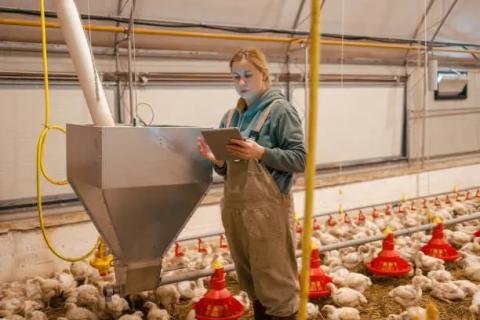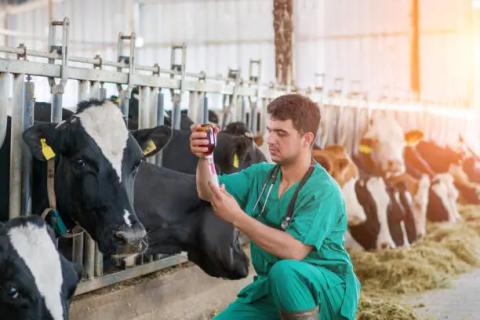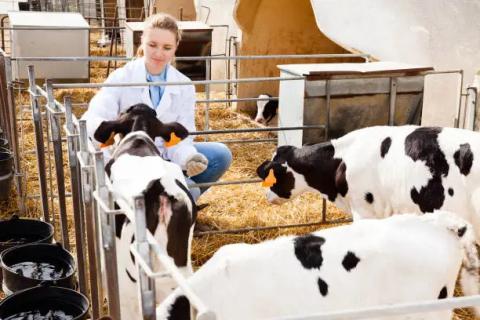Antimicrobial Stewardship and Useful Links

The Importance of Antimicrobial Stewardship, Here and Around the World: A global movement
In 2015, the World Health Organization (WHO) presented a Global Action Plan on Antimicrobial Resistance, and its Member States committed to developing a multisectoral national action plan within the ensuing two years. To achieve this goal, the Global Action Plan outlines five strategic objectives:
- To improve awareness and understanding of antimicrobial resistance;
- To strengthen the knowledge and evidence base through surveillance and research;
- To reduce the incidence of infection;
- To optimize the use of antimicrobial medicines;
- To develop the economic case for sustainable investment.
In order to meet the second objective, WHO Member States must “Collect and report data on use of antimicrobial agents in human and animal health and agriculture so that trends can be monitored, and the impact of action plans assessed.” Member States must also “Strengthen animal health and agricultural practices through implementation of the standards published in the OIE Terrestrial and Aquatic Animal Health Codes and FAO/WHO Codex Alimentarius Code of Practice to Minimize and Contain Antimicrobial Resistance.”
In September 2016, the United Nations General Assembly deemed antibiotic resistance a significant enough issue to adopt a political declaration to combat the global threat of antimicrobial resistance. UN Member States committed to implementing such a plan in their nation and working together to combat antimicrobial resistance.
A Pan-Canadian Framework for Action
In October 2014, the Government of Canada published Antimicrobial Resistance and Use in Canada: A Federal Framework for Action. This document was followed in March 2015 by the Federal Action Plan on Antimicrobial Resistance and Use in Canada. In August 2017, the Government of Canada published Tackling Antimicrobial Resistance and Antimicrobial Use: A Pan-Canadian Framework for Action. This new framework is based on four core components: surveillance, infection prevention and control, stewardship, and research and innovation.
The surveillance opportunities for action proposed in this pan-Canadian framework are as follows:
- Engage with stakeholders to ensure coordination at all levels to move toward robust and comprehensive surveillance systems with defined objectives and the required capacity for AMR [antimicrobial resistance] and AMU [antimicrobial use] data collection.
- Establish coordinated platforms and mechanisms to link AMR and AMU data, in particular from the human-health, animal-health and agriculture sectors.
- Enhance coordinated technical guidance for data collection, collation and comparison, including developing standardized definitions of AMR and priority microorganisms in humans and animals.

2023–2027 Pan-Canadian Action Plan on Antimicrobial Resistance
The federal ministers of Health and Agriculture launched the Pan-Canadian Action Plan on Antimicrobial Resistance, which was developed in collaboration with the provinces and territories.
The action plan is a five-year (2023 to 2027) blueprint to coordinate accelerated action between the federal, provincial and territorial governments, as well as industries in Canada.

Antimicrobial Stewardship Initiative by the Canadian Veterinary Medical Association (CVMA)
The Stewardship of Antimicrobials by Veterinarians Initiative (SAVI) was conceived and is driven and managed by Canadian veterinarians. It aims to provide veterinary professionals with the knowledge and tools necessary to make informed decisions on antimicrobial use in a wide range of species. The initiative is supported by the Government of Canada and the Canadian Agricultural Partnership, and is managed by the Canadian Veterinary Medical Association.
The purpose of the SAVI initiative is the creation and piloting of a national veterinary antimicrobial use (AMU) stewardship system aimed at enhancing veterinary decision-making with respect to AMU. SAVI is comprised of mutually supporting stewardship and data collection elements, with a four-year project lifecycle (2019–2023).
The SAVI approach to antimicrobial stewardship includes both guidance and data collection components:
- Guidance is focused on developing guidelines, communicating information and producing tools for both antimicrobial use as well as the development and collation of alternative and supplementary approaches to antimicrobial use (see presentation video).
- Data collection associated with the project will focus on both electronic-prescription and electronic-dispensing data associated with in-feed antimicrobial use across three major species groups: beef, poultry and swine.
Preventive Health Policy in Québec
In October 2016, the Government of Québec adopted a governmental preventive health policy (PGPS). Its implementation was announced in March 2018 as part of the 2017–2021 interdepartmental action plan. The policy reflects the commitment made by 15 departments and agencies, from various areas of activity, to further promote health and prevent avoidable problems by using complementary, synchronized and coherent action.
One of the policy’s 11 objectives is to reduce and control the risks associated with antibiotic resistance in order to effectively prevent infection. More specifically, this policy aims for the integrated management of antibiotics in order to ensure their judicious use in the human- and animal-health sectors (measure 4.4). Quebec’s ministry of health and social services (MSSS) and ministry of agriculture, fisheries and food (MAPAQ) will collaborate to implement joint governance mechanisms as well as take some of the actions stated in their respective action plans on antimicrobial stewardship.
In June 2022, the 2022-2025 interdepartmental action plan was launched.
The mandate the MAPAQ gave the University of Montréal’s faculty of veterinary medicine in the spring of 2018 was to conduct a study on the feasibility of a system to monitor antibiotic use in the main animal species, which will include:
- Drawing up a list of the monitoring systems used around the world;
- Drawing up a list of the projects underway in Canada and Quebec and opportunities to join forces;
- Drafting an action plan to consolidate ongoing projects and develop them into a recurring monitoring system;
- Taking into consideration the scientific, technological, social and economic aspects.
This work is in line with the Government of Québec’s bio-food policy (2018–2025), which aims to strengthen initiatives to prevent antibiotic resistance and promote the judicious use of drugs, as well as the antimicrobial stewardship work carried out by the Quebec strategy on animal health and well-being.
Useful Links
Veterinary Associations and Professional Licensing Body in Québec
- Association des médecins vétérinaires du Québec en pratique des petits animaux (AMVQ)
- Association des médecins vétérinaires praticiens du Québec (AMVPQ)
- Association des vétérinaires en industrie animale du Québec (AVIA)
- Association des vétérinaires équins du Québec (AVEQ)
- Canadian Veterinary Medical Association
- Ordre des médecins vétérinaires du Québec (OMVQ)
Faculté de médecine vétérinaire
Québec Province Level
- Plan d’action interministériel 2017-2021 de la Politique gouvernementale de prévention en santé (PGPS)
- Stratégie québécoise de santé et de bien-être des animaux (SQSBEA)
- Page du MAPAQ sur l’usage des antibiotiques
- Résultats de la surveillance de la résistance aux antibiotiques réalisée par le MAPAQ
National Level
- Stewardship of Antimicrobials by Veterinarians Initiative (SAVI) managed by the Canadian Veterinary Medical Association
- Pan-Canadian Action Plan on Antimicrobial Resistance
- Canadian Integrated Program for Antimicrobial Resistance Surveillance (CIPARS)
International Level
